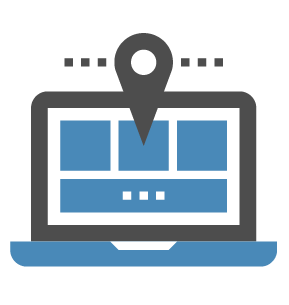4 Areas of Web Security A Business Owner Must Manage
Your web security is about risk reduction because the risk will NEVER BE ZERO. There is no perfect security solution or guarantee because the hacks are forever working on new methods as we all go on about the business day. Serious business people must get familiar with these 4 areas of security in order to stack the ‘web security odds’ in their favor!
1. Local Computers & Communication
– simply put, your computer is the biggest area of vulnerability and where most hacks begin (i.e. keystroke malware will expose all logins)
– best to have virus and (we also recommend having) malware scanning software (i.e. malwarebytes.com)
– be reluctant to click on links or react to anything in an email unless you are absolutely certain of who it came from
– if inclined to pursue, search the website domain on Google before visiting = Google crawls the world wide web’s website
pages for malware- and nefarious activity
2. Website Security
– there are good & bad security software options, some only suited for particular things, so be sure to research your website security solution
– firewalls matter and FREE website security solutions do not offer firewalls
– inconvenient as it may be we must all manually-encrypt login page URLs, usernames, and passwords using a non-obvious combination of letters, numbers, and symbols
– when offered – use dual identification techniques
3. Website Updates Management
– manage a business website as if it is under attack… because it is!
– good website software, like WordPress, advances its code and because the advances arrive in the way of code updates, they must be managed
– and WordPress not only brings core software updates, but the website theme and any applications the site has will get updates … these advance usability or harden code against vulnerability to hack
4. (SSL) Secure Socket Layers = Browser to Website Connections
– Google has stated SSL is necessary
– now they make it visible in the browser, meaning you are either an ‘I’ for insecure or a ‘Lock’ icon for a secure website
– SSL protects the exchange of information between a browser and a website from hacks that might otherwise get in between that connection MEANING this is NOT website, so much as it is ‘web security’
– it may seem an obvious need for e-commerce, but exposure also stems from visitors filling out website contact forms and website owners logging in to their websites from a browser!
Managing a web presence can be difficult for busy business people so we provide a series of different webmaster & host management options, including advanced website security, to relieve folks of that burden. Ask us about client-friendly webmaster services!


